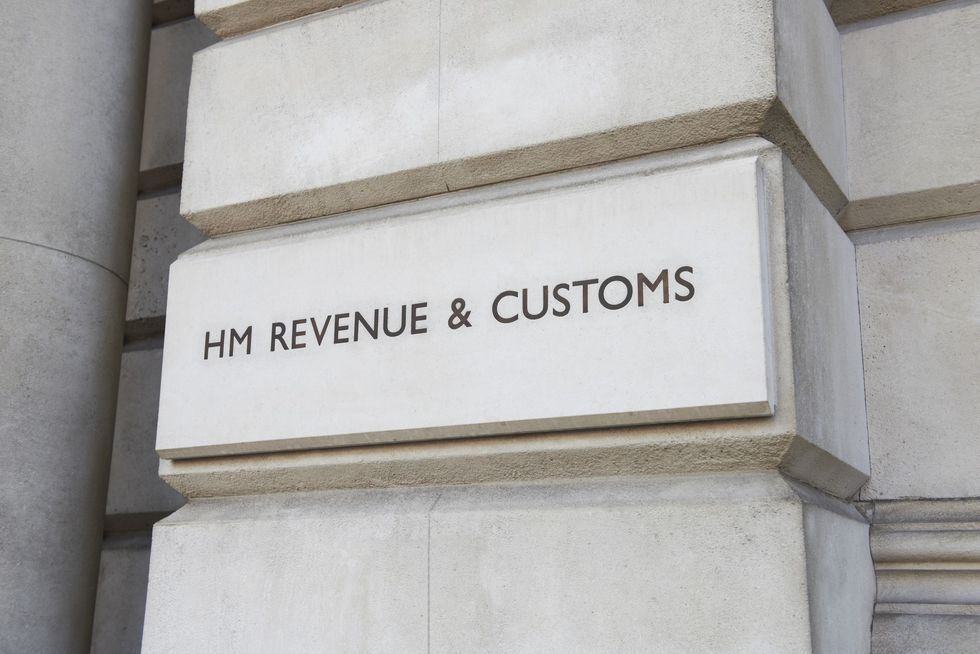Inheritance tax warning as thousands told to pay bill before they die after 'catastrophic' HMRC failures
Inheritance tax warning as thousands told to pay bill before they die due to 'catastrophic' HMRC failures
Thousands of contractors have been caught up in the loan charge saga
Don't Miss
Most Read
Trending on GB News
Thousands of workers in the UK are facing an unexpected inheritance tax bill while still alive due to complex rules surrounding trusts.
This unusual situation primarily affects contractors caught up in the controversial loan charge saga, which has been likened to the Post Office Horizon scandal by MPs.
The loan charge, introduced in 2017, was designed to recover unpaid taxes from schemes that paid contractors through loans instead of regular salaries.
The freelancers argued they were duped into using the schemes, which were aggressively promoted by third parties and in some cases approved by their employers.
Many of these schemes involved trusts, triggering inheritance tax liabilities when contractors settle their disputes with HM Revenue and Customs (HMRC).
One contractor reported having to pay £9,000 in inheritance tax on top of a £47,000 settlement with HMRC, forcing them to sell their home and live on reduced pension and savings.
The loan charge was introduced in 2017 to stamp out schemes which involved paying contractors' salaries via loans instead of normal wages, therefore avoiding income tax and National Insurance.

HMRC has stated that they "appreciate there's a human story behind every tax bill" and take taxpayers' wellbeing seriously. They recognise the pressure large tax liabilities can cause and are "committed to supporting customers who need extra help".
GETTYThese arrangements often involved offshore trusts, which can trigger inheritance tax when money moves in or out.
Tom Wallace of WTT, a tax advice firm, explained: "The vast majority of schemes, and particularly those that were sold pre-2018, used trusts to make the loans and therefore invoke inheritance tax rules."
The loan charge allowed HMRC to claw back the unpaid tax all in one go – hitting contractors with soaring six-figure bills.
The inheritance tax due is typically up to one per cent for each year funds were in the trust, rather than the standard 40 per cent rate.
This additional burden has left many contractors facing financial ruin, with some forced to sell homes or deplete savings to settle their tax affairs.
The loan charge has impacted over 60,000 contractors and has been linked to 10 suicides, according to reports.
The human toll of this situation is evident in impact statements collected by the Taxpayer Fairness All-Party Parliamentary Group (APPG). One contractor wrote: "I am now living on a reduced pension with heavily depleted savings."
Another shared their ongoing distress: "I had to pay inheritance tax in settlement to make the nightmare go away and were still living in fear of further tax demands."
The controversy has led to accusations that HMRC is unfairly targeting contractors who made mistakes, rather than those who promoted the schemes.
Greg Smith, Conservative co-chair of the Taxpayer Fairness APPG, called the loan charge a "catastrophic failure" with over 40,000 unresolved cases.
The political response to this issue has been significant. The Loan Charge and Taxpayer Fairness APPG, formed in 2019, has been vocal in criticising the "draconian" nature of the loan charge and its inheritance tax implications.
Wallace said: "Inheritance tax has much wider application than many realise.
"Whilst most associate it with being a tax on assets that are held on death, in reality, it captures many situations during lifetime transfers of value where a person’s estate value goes up or down from the transfer of capital."
Chancellor Rachel Reeves vowed in January to review the loan charge if Labour were to win the election, a promise that campaigners are now holding her to.
The Treasury has confirmed it is considering the matter, with Exchequer Secretary James Murray stating: "We have been considering this matter since taking office and will provide an update in due course."
A group of 60 tax professionals has called for the Government to address the inheritance tax issue, proposing that HMRC should treat the write-off of a loan charge loan as an event with no inheritance tax consequence.
Sammy Wilson, DUP MP and APPG officer, has demanded transparency from HMRC and an end to its "aggressive tactics".
HMRC has stated that they "appreciate there's a human story behind every tax bill" and take taxpayers' well-being seriously. They recognise the pressure large tax liabilities can cause and are "committed to supporting customers who need extra help".
The tax authority urges anyone worried about paying what they owe to contact them as soon as possible to discuss options.







